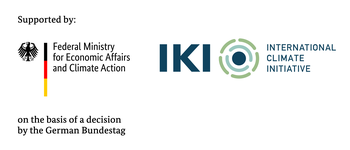COPA primarily supports countries from the Global South eligible for Official Development Assistance in creating effective greenhouse gas mitigation through ozone depleting substances (ODS) and hydrofluorocarbon (HFC) banks management. Partner countries receive access to technical and financial support to establish and further develop a regulatory framework and infrastructure to effectively address the global ODS and HFC banks problem. Countries are welcome to become members of the alliance and benefit from knowledge exchange and an international network of actors willing to jointly work on the sustainable management of ODS and HFCs. In the initial phase, COPA cooperates with China (Ministry of Ecology and Environment of the People’s Republic of China - Foreign Environmental Cooperation Office), Ghana (Ministry of Environment Science Technology and Innovation - Environmental Protection Agency), Mexico (Secretariat of Environment and Natural Resources of Mexico), Tunisia (Ministry of Environment of Tunisia) and Ecuador (Ministry of Production, Foreign Trade, Investment and Fisheries). COPA is working with the five countries to define country-specific commitments, develop project concepts and implement first pilot actions. The results and expertise can then be transferred and multiplied to other countries. COPA focuses on mitigation actions in metropolitan regions as ODS and HFC waste stocks mostly accumulate in densely populated areas.COPA PARTNER & MEMBER COUNTRIES
COPA COUNTRIES
Botswana Botswana currently faces a challenges of proper establishment of the ODS and HFCs banks currently in the country. During implementation of Stage II HPMP, a guide baseline survey was done to collect data to assess the potential and economic feasibility of HCFC reclamation and evaluate the feasibility and economic viability of the reclamation system (decentralized and centralized). However, preliminary results have indicated that the quantity and prices of HCFCs (mostly R22) are low, suggesting low probability of an economically viable reclamation center. Data and information from the finalized report and will be availed upon completion. A few companies have recovery units and cylinders they have used to bank ODS but the quantities are very small. The planned implementation of ODS Banks project will establish the exact quantities, and recommendations. One challenge is the lack of recovery units for the RAC industry to use in this regard. Some recovery tools and equipment were bought through HPMP stage I and II implementation with UNIDO and through donations from GIZ, and they were donated to RAC training centres across the country for use in RAC technician training. More work is needed to collaborate with RAC Industry businesses on the provision of tools and equipment. UNDP is willing to support the partners to strengthen their systems for the reduction of ODS and HFCs banks emissions.
Please select a country:
Member
Some preliminary recommendations include setting up a collection center for recovered refrigerants. Support will also be provided to the RAC industry to facilitate setting up this center, including provision of recovery tools and equipment, as well as modalities for transporting these from across the country to the center.Activities
